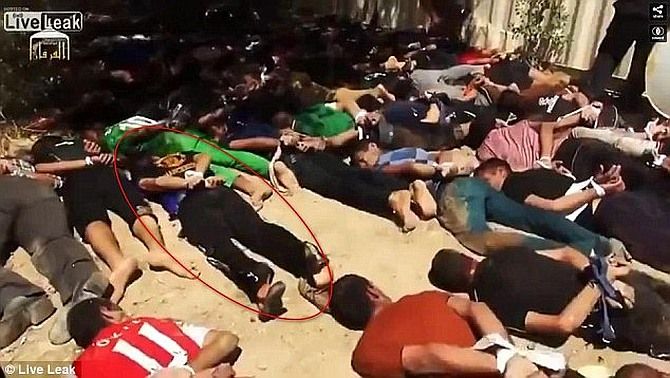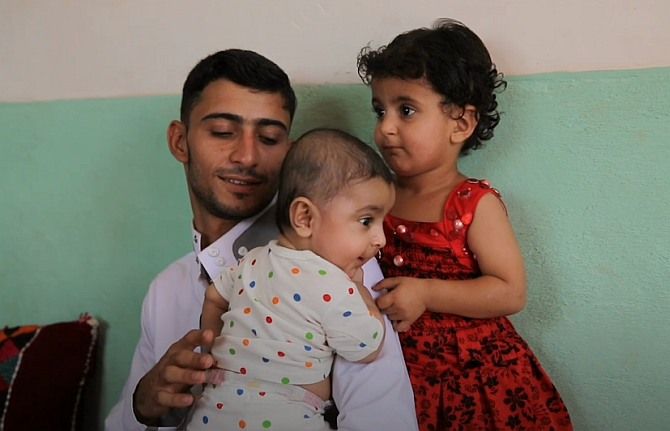Ali Hussein Kadhim joined the Iraqi army only 10 days before his life was going to change forever.
With no other means of livelihood, the 23-year-old Shiite father of two children decided to take up arms to fight the dreaded Islamic state militants.
Today, he stands before the world as a rare eyewitness to the extreme brutality of the ISIS militants.
The June massacre remains one of the deadliest incidents in ISIS' reign of terror. The ISIS claimed it murdered 1,700 people, while Human Rights Watch confirmed between 560 and 770 deaths.
Kadhim was supposed to have been among the dead, until he showed up at Shiite-held Erbil.
It all began when Iraqi officers at the Tikrit base decided to desert the outpost fearing an ISIS invasion. The 3,000-odd army recruits too followed suit.
They shed their uniforms for civilian clothes and marched off the base. But just a few miles ahead, they were picked up by ISIS fighters.
The armed terrorists packed the soldiers into trucks and promised to take them to their families. Instead, they drove them back to Tikrit's palace -- where hundreds of people would be executed during the June slaughter.
Kadhim said the kidnapped soldiers were split into two groups by religious sect: Sunni soldiers were allowed to repent for their service to the Iraqi army. The Shiites were immediately condemned.
Before the mass execution, ISIS marched the soldiers through the city. Once they reached their graves, just off the Tigris River, the massacre started, Kadhim said.
The terrorists lined up their captives. One fighter shot each in the head while another filmed the carnage.
Kadhim remembered hearing the first two bullets. The third killed the man sitting next to Kadhim, he said. He saw blood spurting from the three men who had already been shot.
Kadhim told The New York Times that he narrowly escaped death by pretending to be dead after the bullet intended to kill him missed his head.
He pretended to be shot and collapsed into a trench dug by the militants. One of the militants stopped and noticed he was still breathing.
"Just let him suffer," said another jihadist. "He's an infidel Shia. Let him suffer. Let him bleed."
After four hours, he crawled to a riverbank where he saw an injured man named Abbas who was also shot before being shoved in the river. The two stayed there for three days, eating insects and plants.
"It was three days of hell," Kadhim told the New York Times.
At nightfall, the 23-year-old dipped into the water and began swimming. He was careful to keep most of his body underwater so ISIS terrorists guarding a nearby bridge would not see his splashing.
Across the river was land not controlled by ISIS, but heavily populated with Sunni Muslims. Fearing that they would turn him in, he staked out in a reed hut fort hours to sleep.
In the morning, his hunger grew too severe and he was forced to ask for help. He knocked on door of a nearby home. The Sunni family took him in, and fed him eggs and yogurt.
Over the next three weeks, Kadhim moved from family to family in the area trying to keep his location a secret from ISIS fighters. He eventually reached an underground railroad operator helping Shiites flee from the terrorists.
Today, re-united with his family, Kadhim is jobless. He works at his uncle's orchard.





